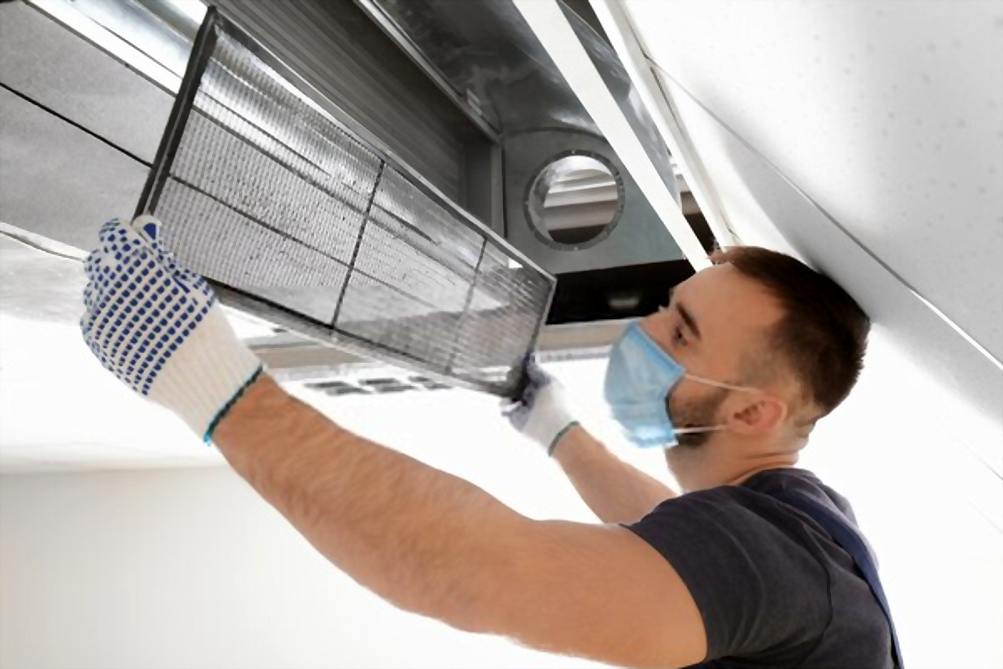Choosing the right HVAC contractor is a critical step in ensuring your home's heating and cooling systems function effectively and effectively. Whether putting in a new system, replacing an outdated one, or merely maintaining your current setup, the contractor you select can make all the difference. With so many options available, it can be challenging to locate a capable professional who meets your specific needs.
In this guide, we will guide you through key factors to help you pick the ideal HVAC contractor for your home. From comprehending what HVAC systems are to acknowledging the significance of indoor air quality, you will gain knowledge into how to take informed decisions. Furthermore, we will investigate common HVAC issues and their resolutions, seasonal maintenance tips, and how to enhance your system's efficiency, all of which are crucial components to evaluate when assessing potential contractors.

Grasping HVAC Systems
HVAC represents Heating, Ventilation, and Air Conditioning. It denotes the system used to regulate the indoor environment of domestic and business spaces. An HVAC unit is created to provide a pleasant atmosphere by adjusting warmth, moisture levels, and air quality, making it crucial for ensuring a healthy and pleasant atmosphere. Knowing the elements of HVAC systems helps resident owners and establishments decide on wise determinations about installation, service, and upgrades.
The main parts of an HVAC system consist of a heater or boiler for warmth, an air conditioning unit for cooling, and ventilation for air distribution and air cleaning. These components work together to guarantee that the environment in a facility is comfortable, well-circulated, and devoid of contaminants. In addition to temperature control, HVAC units can also manage moisture levels and filter out dust, pollen, and other irritants to improve the quality of indoor air.
Regular upkeep is crucial to the efficiency and lifetime of an HVAC system. It entails scheduled checkups, cleaning, and prompt repairs to avoid typical problems such as failures or loss of efficiency. Homeowners and entrepreneurs should be vigilant in their HVAC care to not just ensure comfort but also to reduce utility costs and prolong the lifespan of their setups. Knowing how HVAC works is the initial step in identifying when it demands care and how to find the right technician for the task.
Common Heating, Ventilation, and Air Conditioning Issues and Solutions
A common HVAC problems is inadequate heating or cooling. This can result from a variety of factors, including dirty air filters, duct leaks, or improper thermostat settings. To resolve this problem, regularly inspect and change air filters every 1-3 months and ensure that vents are not blocked. If the problem persists, it may be required to check the ductwork for leaks or have a technician assess the performance of your HVAC system.
A different issue is strange noises from the HVAC unit. These sounds can signal a variety of problems, from loose components to significant mechanical failures. Pay close attention to any banging, rattling, or piercing whistling noises. If you detect these sounds, it is advisable to turn off the system and consult a certified HVAC contractor to properly diagnose and resolve the problem before it leads to more serious damage.
Finally, poor indoor air quality can greatly affect your comfort and health. Symptoms such as allergies, respiratory issues, or stale air may signal that your HVAC system needs maintenance. To improve AC service , think about upgrading to high-efficiency air filters, adding air purifiers, or ensuring that your system is properly cared for with regular cleanings. Boosting ventilation and humidity control can also result in a healthier indoor environment.
Choosing the Right HVAC System
Deciding on an right HVAC solution for your dwelling will be crucial for maintaining coziness as well as energy efficiency. Commence with evaluating your dimensions in the area, as a proper heating as well as cooling system must align with your measurements in the home. An inadequate system can fail in maintaining comfortable conditions, and an oversized system can lead to rapid cycling, higher wear and tear, as well as higher energy costs. Consulting with professional to determine your ideal size through a load assessment can help you make an educated decision.
Then, reflect on the varied types of HVAC systems to choose from. Options feature central air coolers, heat transfer systems, ductless mini-split systems, plus geothermal heating as well as cooling. Every option carries its pros and limitations based on your house's layout, climate, as well as energy efficiency targets. Researching these options can assist you understand what system fits your lifestyle as well as budget and providing efficient heating and cooling.
Finally, think on energy efficiency ratings when selecting your HVAC system. Look for units with high Seasonal Energy Effectiveness Ratio (SEER) ratings for air conditioners as well as Heating Seasonal Efficiency Factor (HSPF) ratings for heat pumps. Energy-efficient models could require a higher upfront investment but can bring about significant savings in your energy expenses over the years. Merging energy-efficient equipment with smart thermostat technology can further enhance your HVAC system's performance as well as comfort levels throughout seasons.
